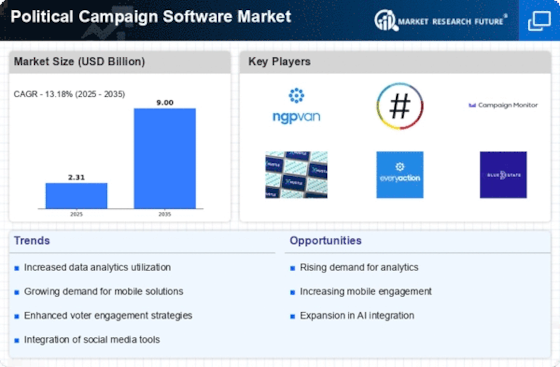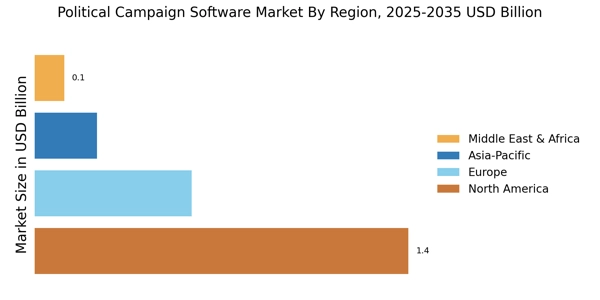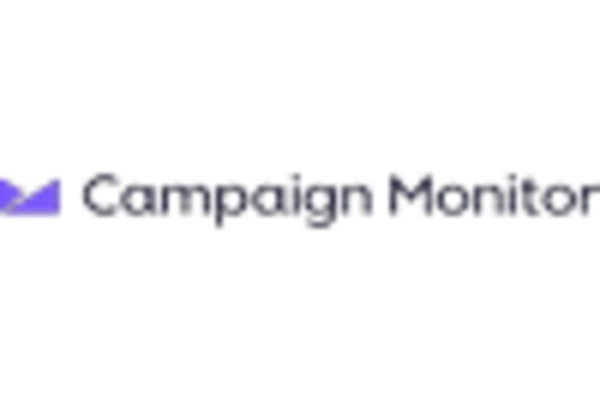Rise of Social Media Engagement
The Political Campaign Software Market is significantly influenced by the rise of social media as a primary communication channel. Candidates and political organizations are increasingly leveraging platforms such as Twitter, Facebook, and Instagram to engage with voters. This trend is underscored by statistics indicating that over 70% of voters utilize social media for political information. Consequently, software solutions that facilitate social media management, content scheduling, and analytics are in high demand. The ability to monitor public sentiment and respond in real-time is becoming essential for campaign success. As social media continues to evolve, the Political Campaign Software Market must adapt to these changes to remain relevant.
Emergence of Cloud-Based Solutions
The Political Campaign Software Market is witnessing a shift towards cloud-based solutions, which offer flexibility and scalability for political campaigns. Cloud technology enables campaigns to access software tools from anywhere, facilitating collaboration among team members and real-time data sharing. Recent data suggests that cloud-based software adoption has increased by over 40% among political organizations. This trend is particularly beneficial for smaller campaigns that may lack the resources for extensive IT infrastructure. As the demand for remote collaboration tools grows, the Political Campaign Software Market is likely to see continued investment in cloud technologies.
Growing Demand for Targeted Campaigning
The Political Campaign Software Market experiences a notable surge in demand for targeted campaigning solutions. Political entities increasingly recognize the necessity of reaching specific voter demographics with tailored messages. This trend is driven by the proliferation of data analytics tools that allow campaigns to segment audiences effectively. According to recent data, campaigns utilizing targeted strategies have reported up to a 30% increase in voter engagement. As political campaigns become more sophisticated, the need for software that can analyze voter behavior and preferences becomes paramount. This shift towards precision in campaigning is likely to continue, as candidates seek to maximize their outreach and influence.
Increased Focus on Compliance and Security
The Political Campaign Software Market faces growing scrutiny regarding compliance and data security. With the rise of regulations governing data privacy, political campaigns must ensure that their software solutions adhere to legal standards. This focus on compliance is driven by the need to protect sensitive voter information and maintain public trust. Recent surveys indicate that nearly 60% of campaign managers prioritize security features when selecting software. As campaigns become more data-driven, the demand for secure and compliant software solutions is likely to increase. This trend highlights the importance of integrating robust security measures within the Political Campaign Software Market.
Integration of Advanced Analytics and Reporting
The Political Campaign Software Market is increasingly characterized by the integration of advanced analytics and reporting capabilities. Campaigns are recognizing the value of data-driven decision-making, leading to a demand for software that provides in-depth insights into voter behavior and campaign performance. Recent findings indicate that campaigns utilizing advanced analytics can improve their strategic planning by up to 25%. This trend reflects a broader movement towards leveraging data to enhance campaign effectiveness. As political entities seek to optimize their strategies, the Political Campaign Software Market will likely continue to evolve, incorporating more sophisticated analytical tools.

















